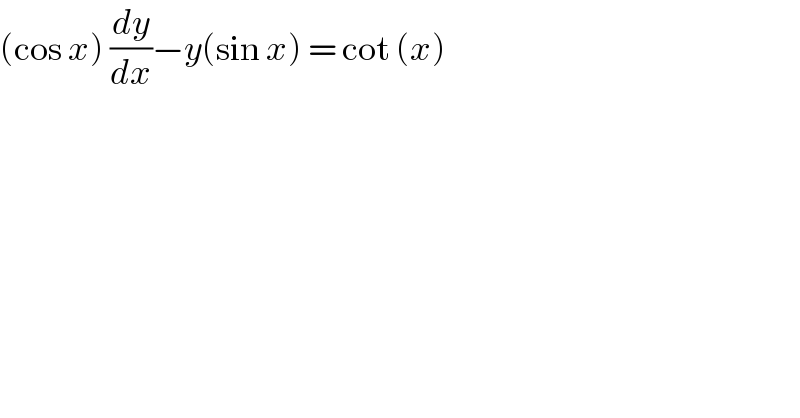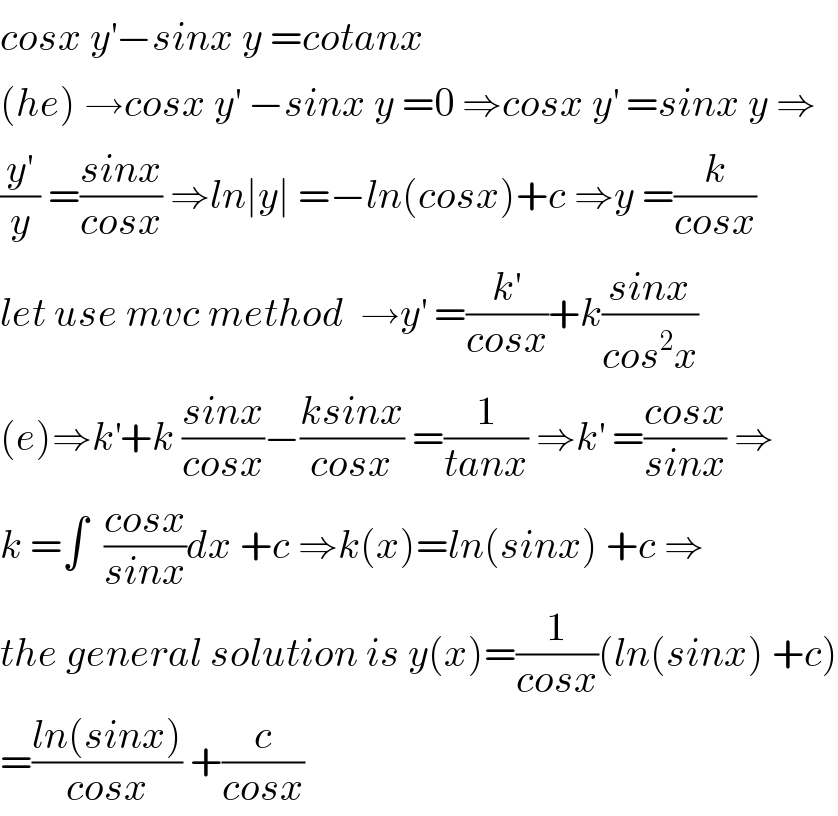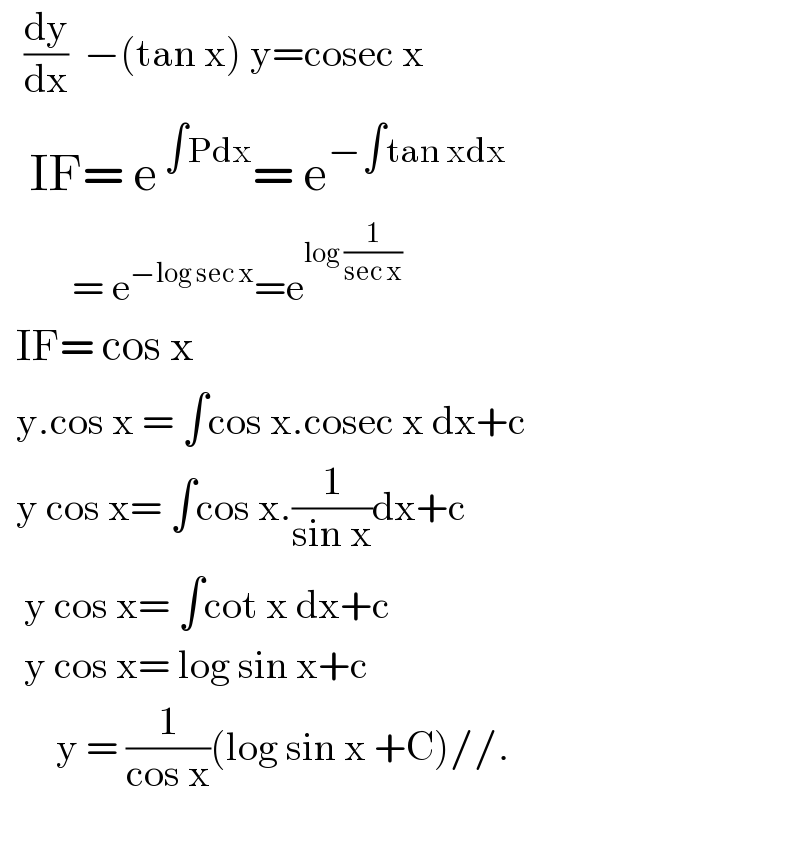
Question and Answers Forum
Previous in Differential Equation Next in Differential Equation
Question Number 91825 by john santu last updated on 03/May/20

Commented by Tony Lin last updated on 03/May/20

Commented by john santu last updated on 03/May/20

Commented by mathmax by abdo last updated on 04/May/20

Answered by john santu last updated on 03/May/20

Commented by john santu last updated on 03/May/20
������
Answered by niroj last updated on 03/May/20

Commented by john santu last updated on 03/May/20
����
